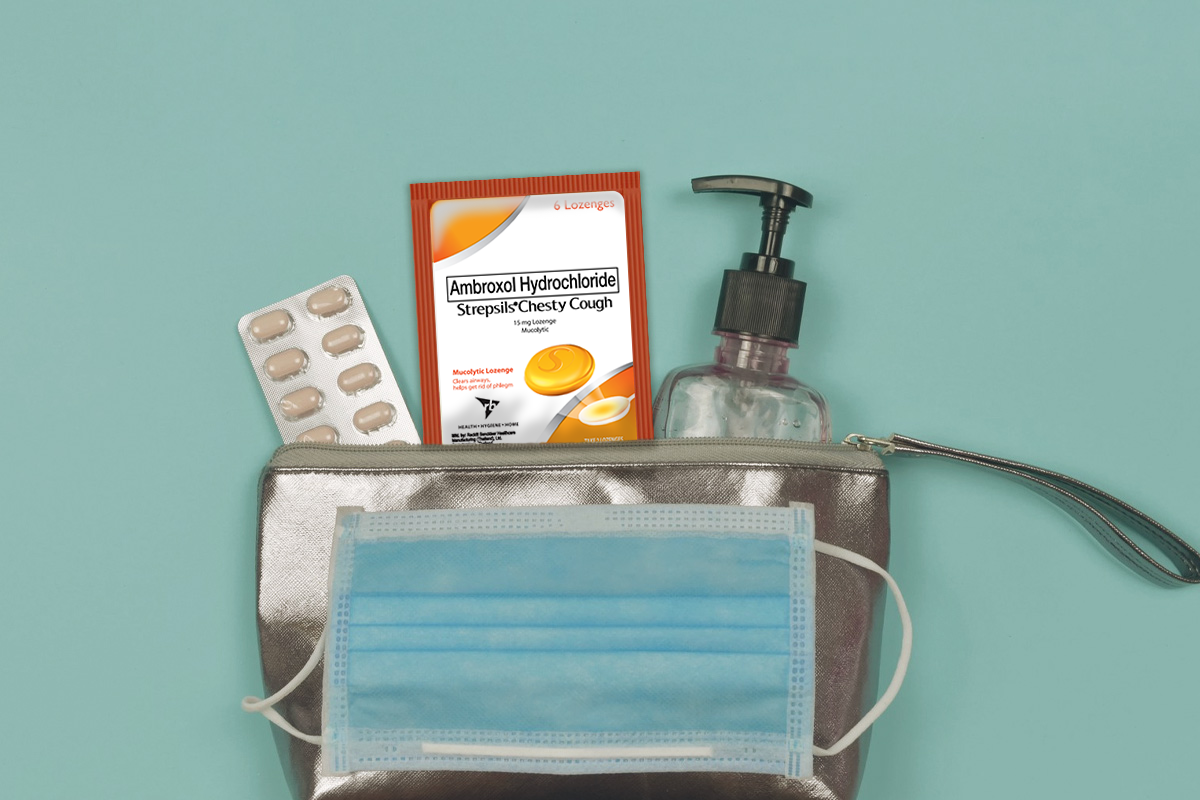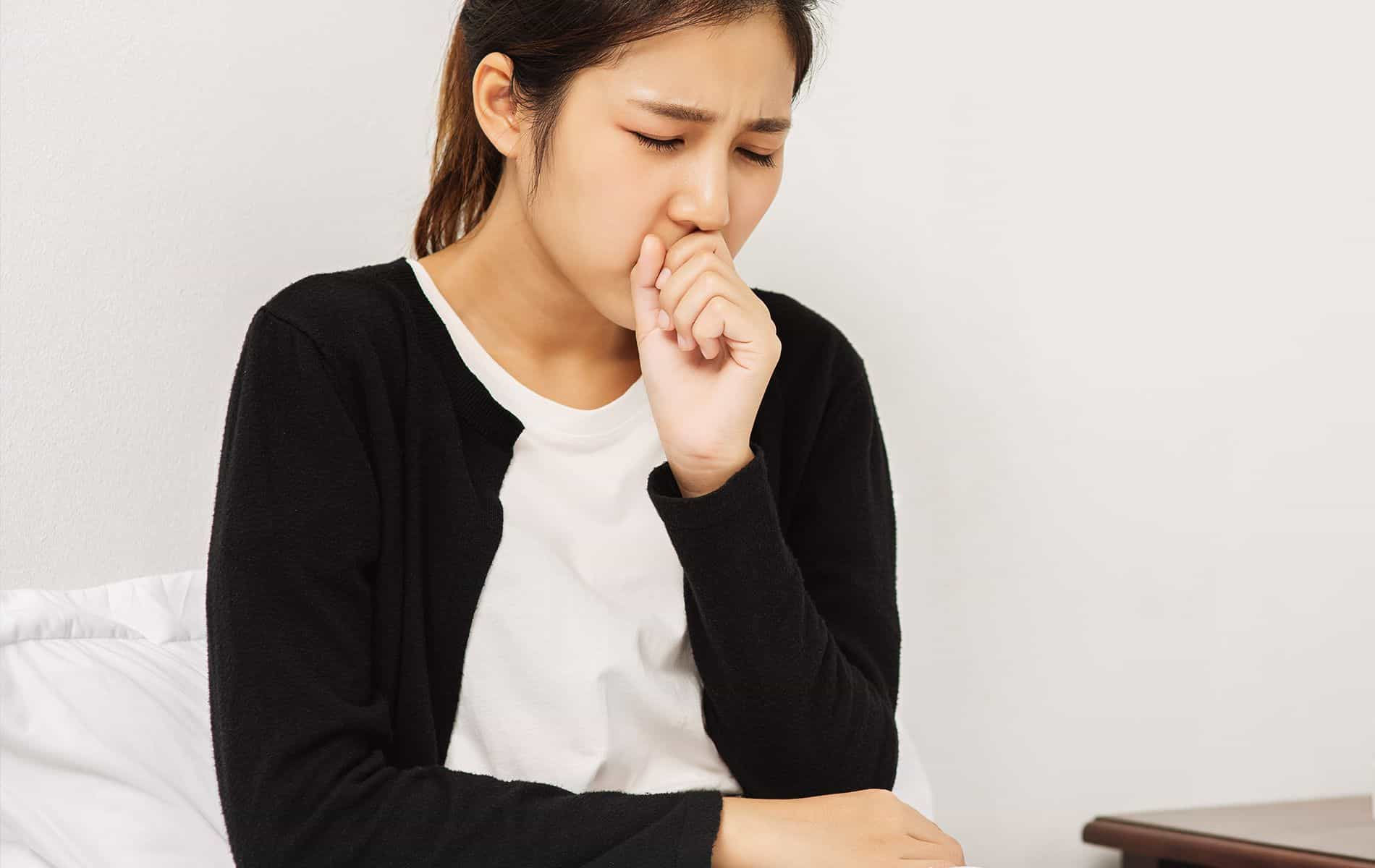Whatever the cause, employing an approach consisting of proper medication and lifestyle changes is an effective way to fight a cough with phlegm.
Also known as a productive or chesty cough, a cough with phlegm can be extremely disruptive not only to you, but also to the people around you. Between having random coughing fits and having to expel phlegm countless times per day, a chesty cough can really make your day miserable.
But that’s not all. It may also be a sign of a more serious infection or condition.
This is why it is important to know how to get rid of a cough with phlegm fast—and that is exactly what we will be talking about today. Let’s dive right in.
First Things First: What Causes a Cough With Phlegm
Before we talk about how to treat a cough with phlegm, let us first go over what causes it.
A cough with phlegm usually develops due to other conditions that cause excess mucus production, which the body attempts to expel through coughing, such as:
- Respiratory infections like the flu, the common cold, pneumonia, and bronchitis
- Asthma, which causes inflammation in the airways that, in turn, can cause excess mucus production
- Postnasal drip where the excess mucus in the nasal passages flows into the back of the throat
- Chronic obstructive pulmonary disease, or emphysema, which leads to long-term inflammation in the body’s airways
- Acid reflux or GERD where the body produces excess mucus to protect the throat from the backflow of the acidic juices in the stomach
- Lung conditions such as tuberculosis and bronchiectasis
| Aside from these medical conditions, smoking is also a leading cause of chronic chesty cough1. It irritates the lungs and airways, which, in turn, causes chronic excess mucus production. All this ultimately leads to a condition called smoker’s cough. |
How to Treat a Cough With Phlegm

Medication
Taking over-the-counter medicine for a cough with phlegm like Ambroxol Hydrochloride (Strepsils) Chesty Cough may be a viable route to treating the condition. It helps fight chesty cough symptoms2 by:
- Helping thin and break down the phlegm in the lungs, making it easier to expel
- Triggering the production of a substance that makes it harder for phlegm to stick to the body’s airways, protecting them from infection and irritation
In addition to taking an over-the-counter medicine for a cough with phlegm, it is also important to take medication and get proper treatment for the underlying condition that is causing your chesty cough.
Need to stock up on Dichlorobenzyl Alcohol + Amylmetacresol (Strepsils)? Shop today at the Reckitt Health and Beauty Store on Lazada and Reckitt Health Official on Shopee.
Lifestyle changes
Aside from medication, the following lifestyle changes may also help speed up your recovery:
- Staying hydrated: Aside from water, you can also take a tablespoon of honey, which is known for its sore throat-soothing properties3, or drink ginger tea which may help to alleviate the symptoms of your chesty cough4
- Stopping smoking: Cutting back or completely stopping smoking will go a long way in helping you recover. This is because even if you take medication and employ home remedies, continuing to smoke could still cause your symptoms to persist or even worsen.
- Managing GERD or reflux: If your chesty cough is due to acid reflux or GERD, on the other hand, then you should focus on avoiding trigger foods, drinks, and activities instead to speed up your recovery.
- Improving your health: Finally, focusing on improving your overall health and immunity, should also make you more resistant to infections that could cause a chesty cough.
For more information on the causes, symptoms, and treatments for chesty cough (and dry cough), please visit the Cough: Symptoms, Causes, and Treatment Options page.
|
Have your coughing fits caused throat irritation or sore throat? You can take Dichlorobenzyl Alcohol + Amylmetacresol (Strepsils), Hexylresorcinol (Strepsils) Max, or Flurbiprofen (Strepsils) MaxPro for that, depending on the severity of your symptoms. Visit the Our Lozenges page for more information. |
The Bottom Line: Treating a Cough With Phlegm Requires a Two-Pronged Approach
Regardless of the cause, employing a combination of proper medication and lifestyle changes is an effective way to treat a cough with phlegm. However, if your symptoms persist or worsen, please consult your doctor immediately.
References:
- Approaching chronic cough, available at https://www.ncbi.nlm.nih.gov/pmc/articles/PMC4759375/. Accessed on 16 October 2024.
- Ambroxol, available at https://go.drugbank.com/drugs/DB06742. Accessed on 16 October 2024.
- Mayo Clinic Minute: Can honey help with coughs?, available at https://newsnetwork.mayoclinic.org/discussion/mayo-clinic-minute-can-honey-help-with-coughs/. Accessed on 16 October 2024.
- Effects of Ginger and Its Constituents on Airway Smooth Muscle Relaxation and Calcium Regulation, available at https://www.ncbi.nlm.nih.gov/pmc/articles/PMC3604064/. Accessed on 16 October 2024.
